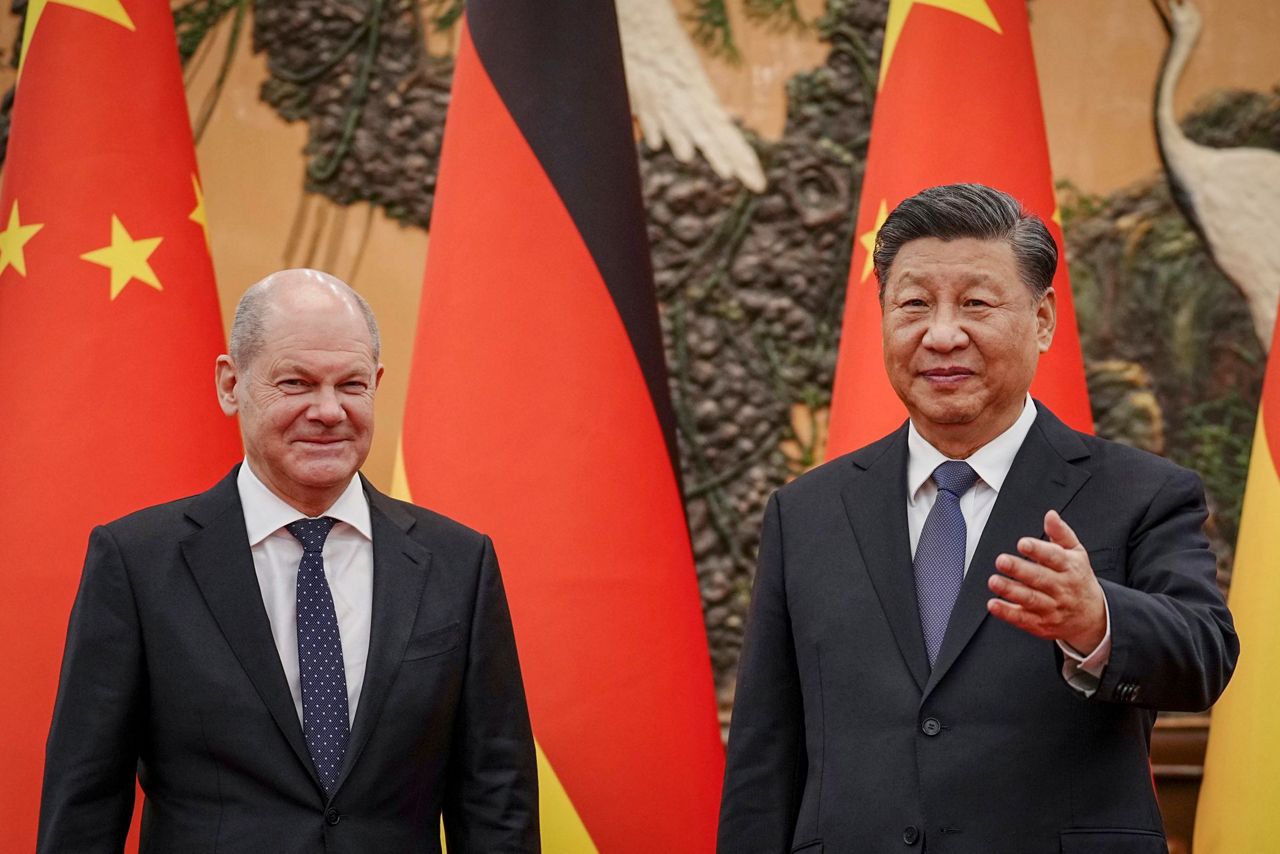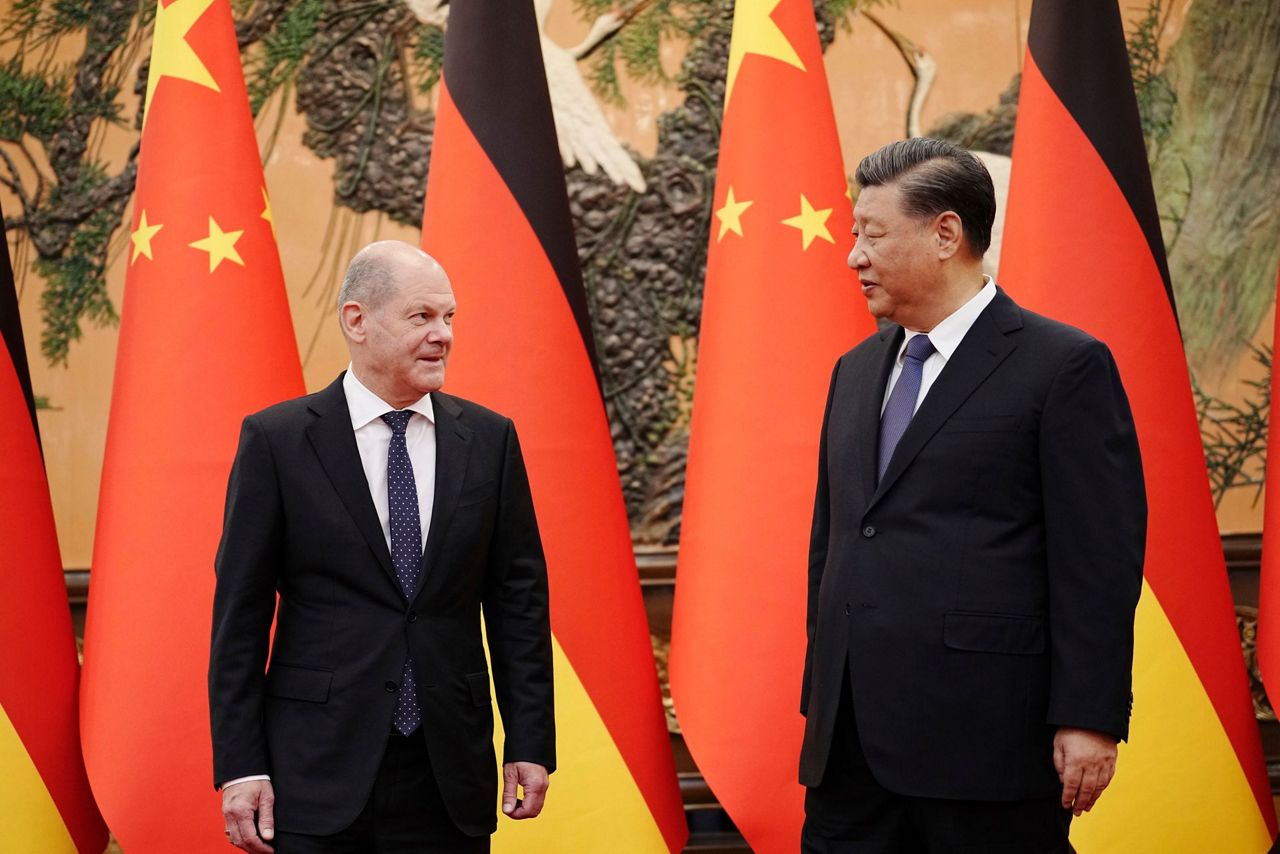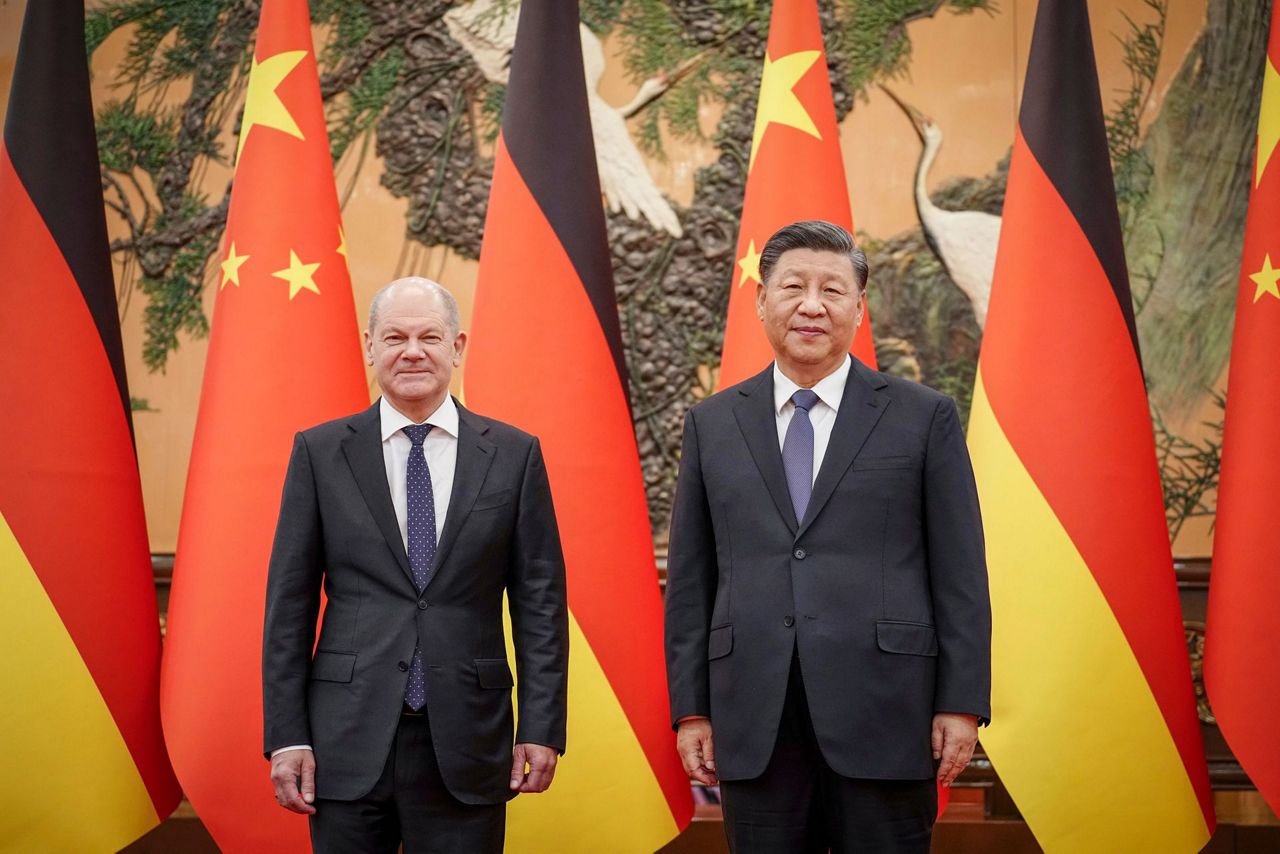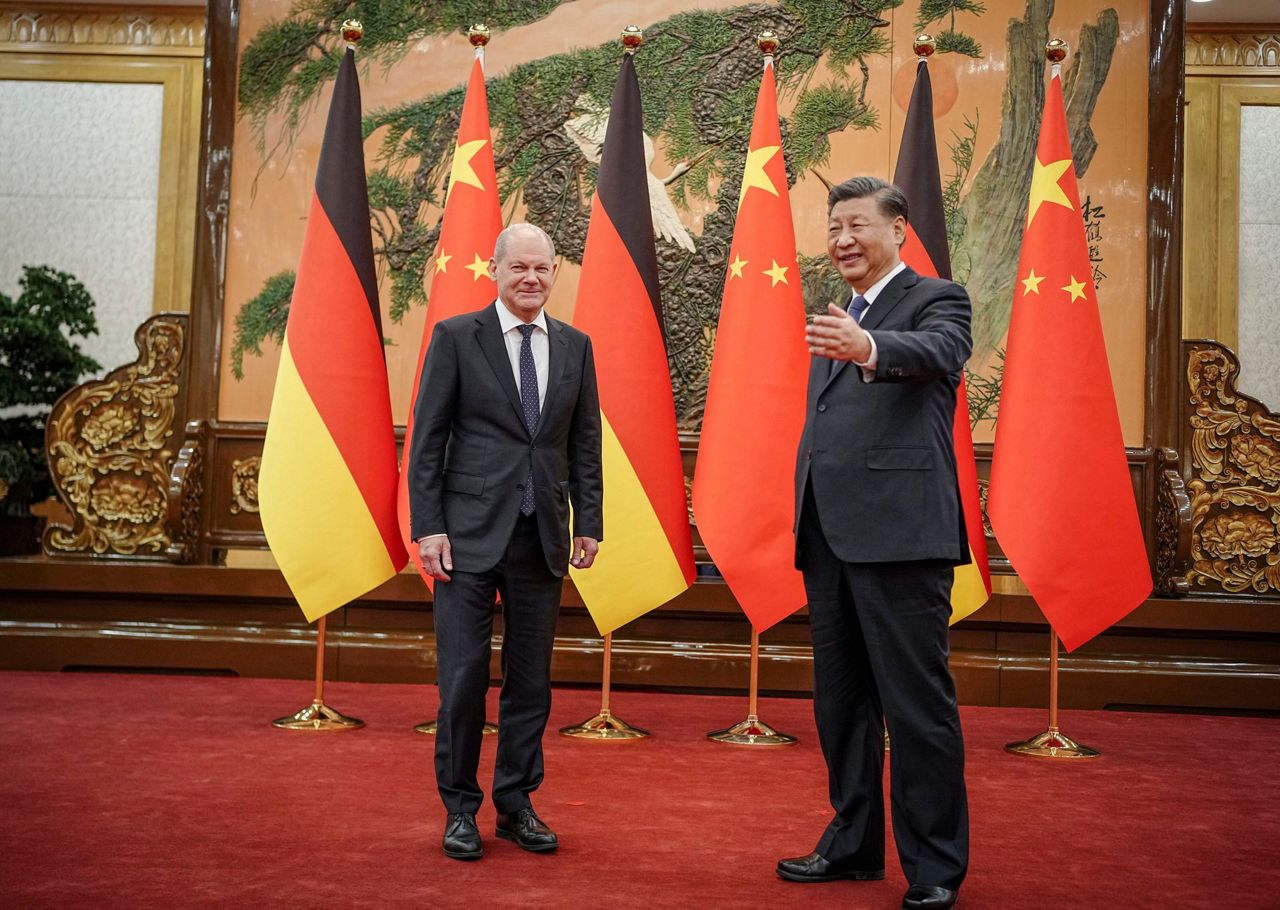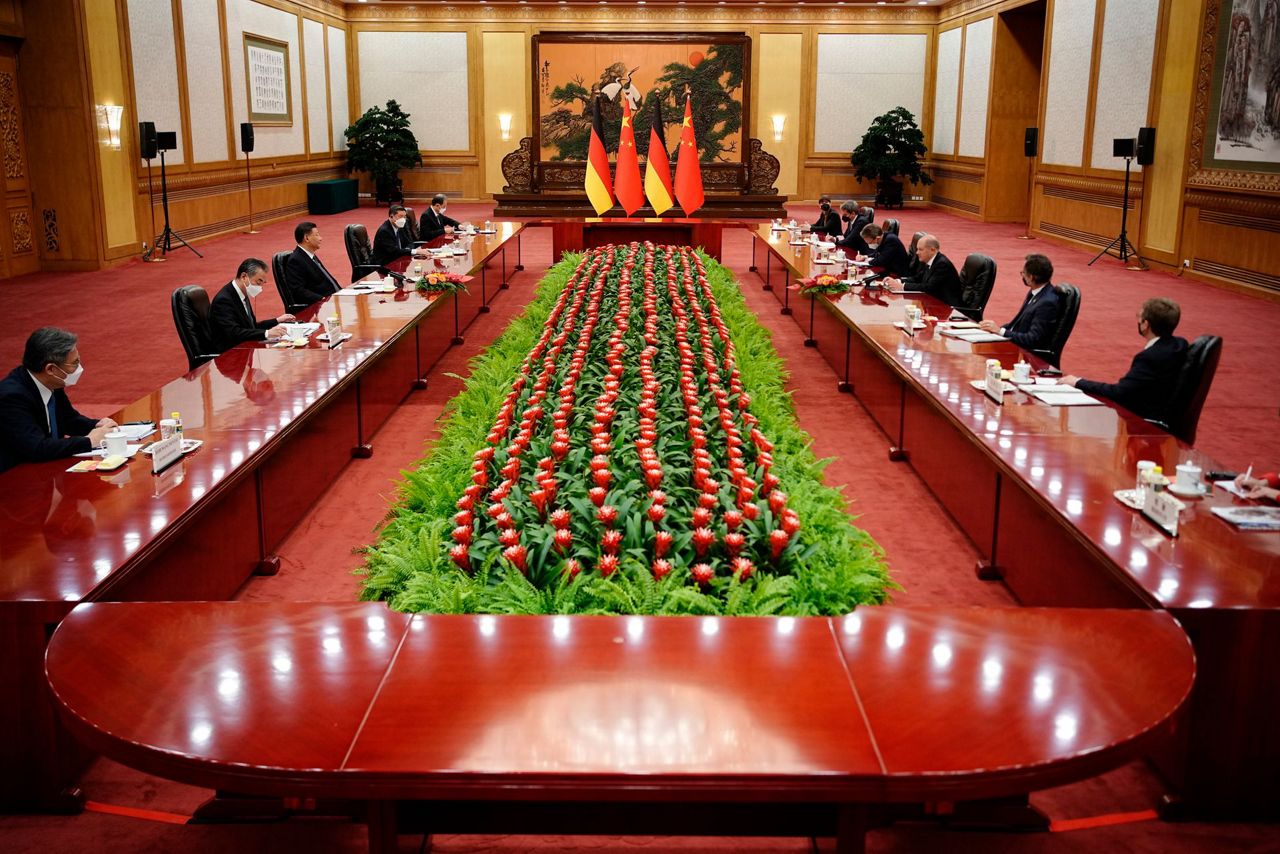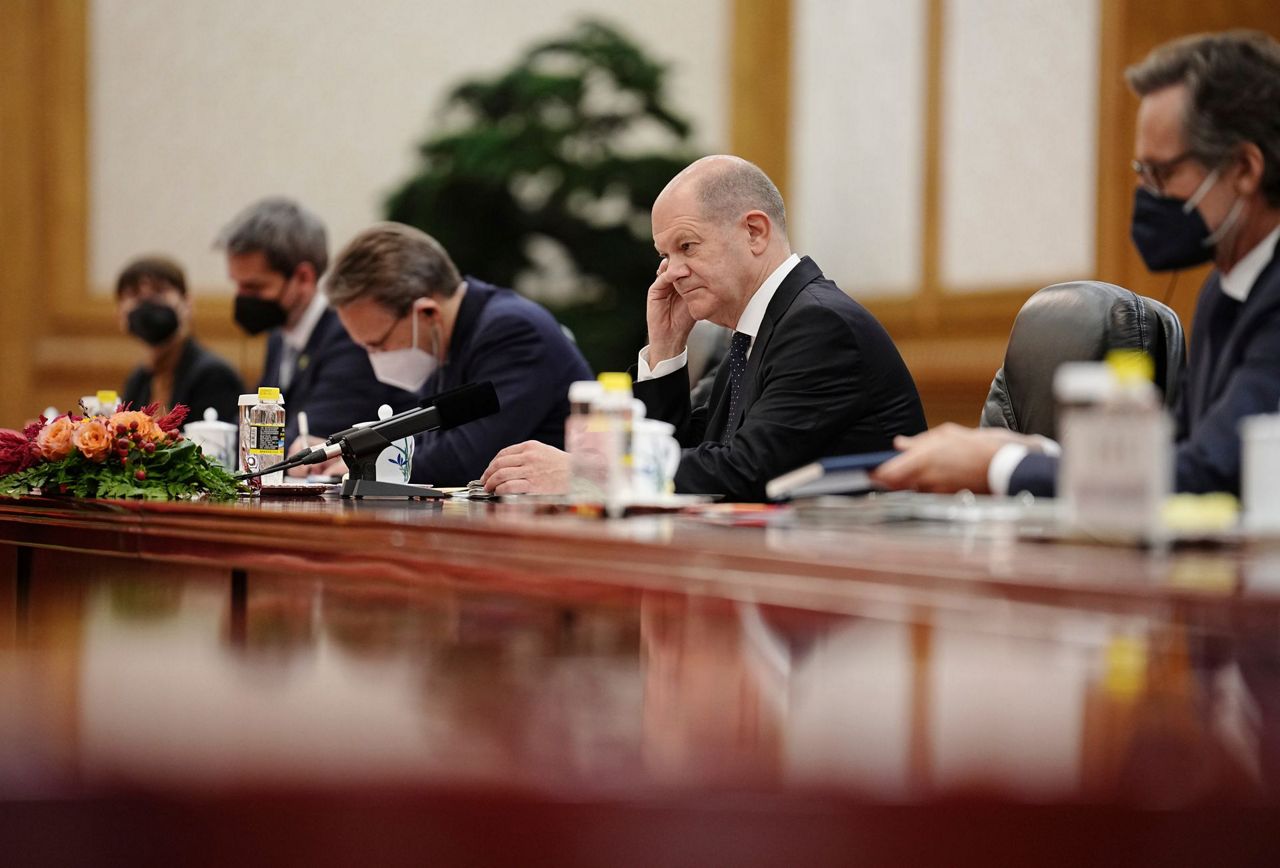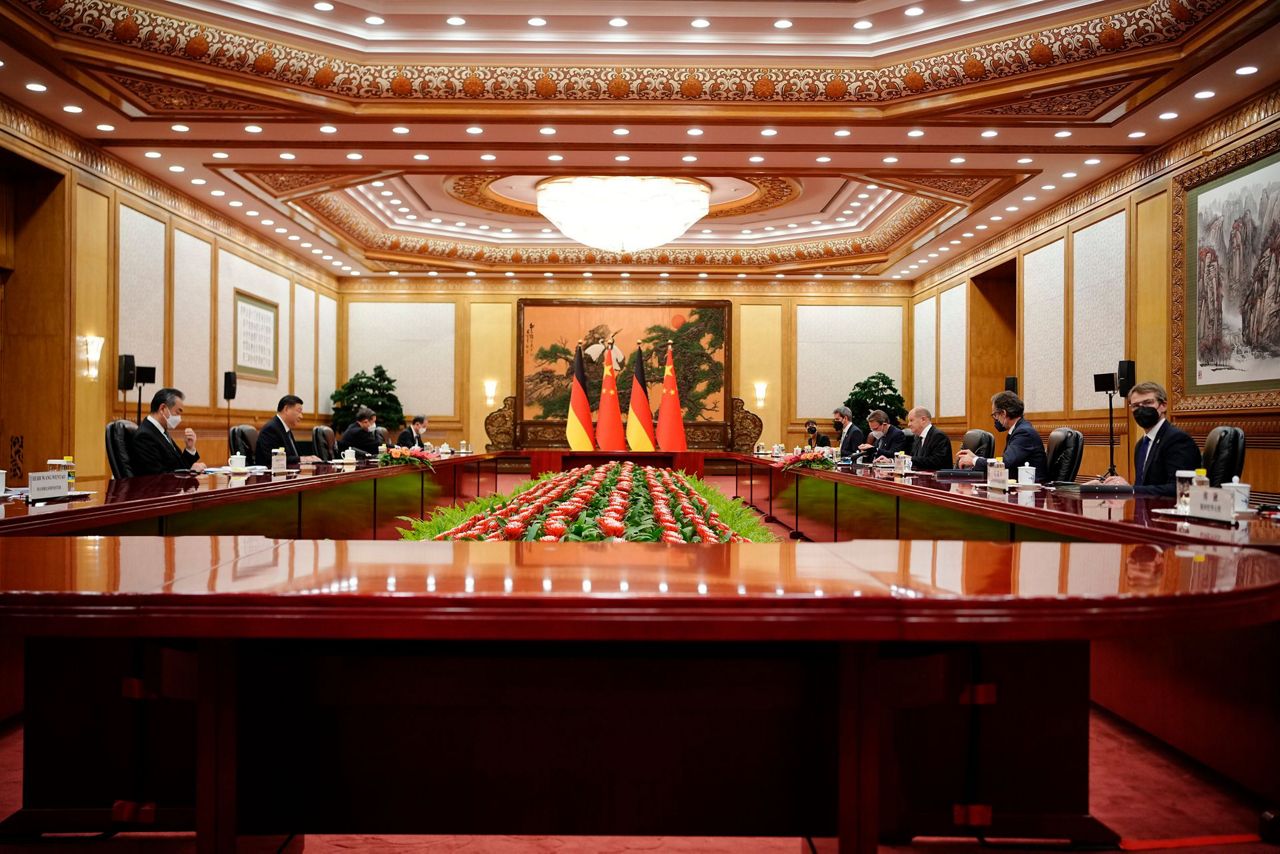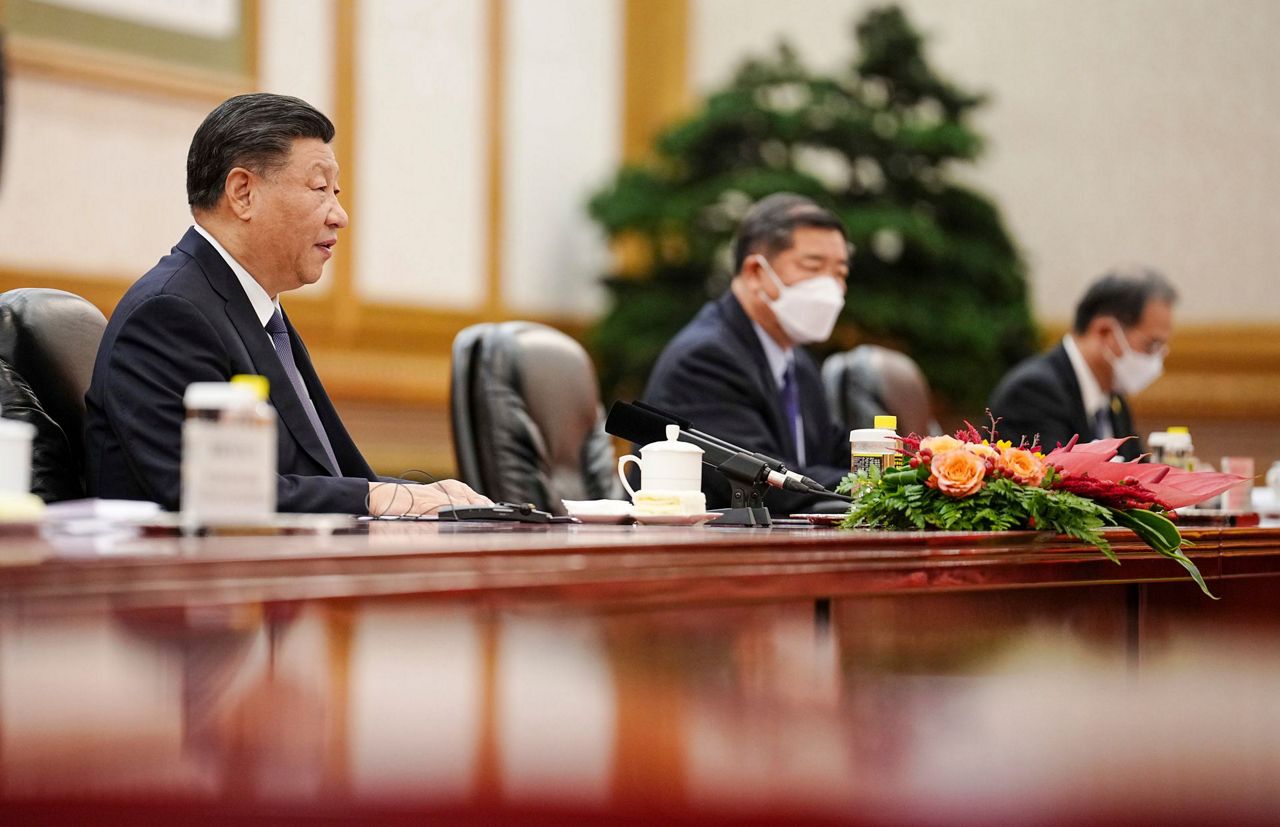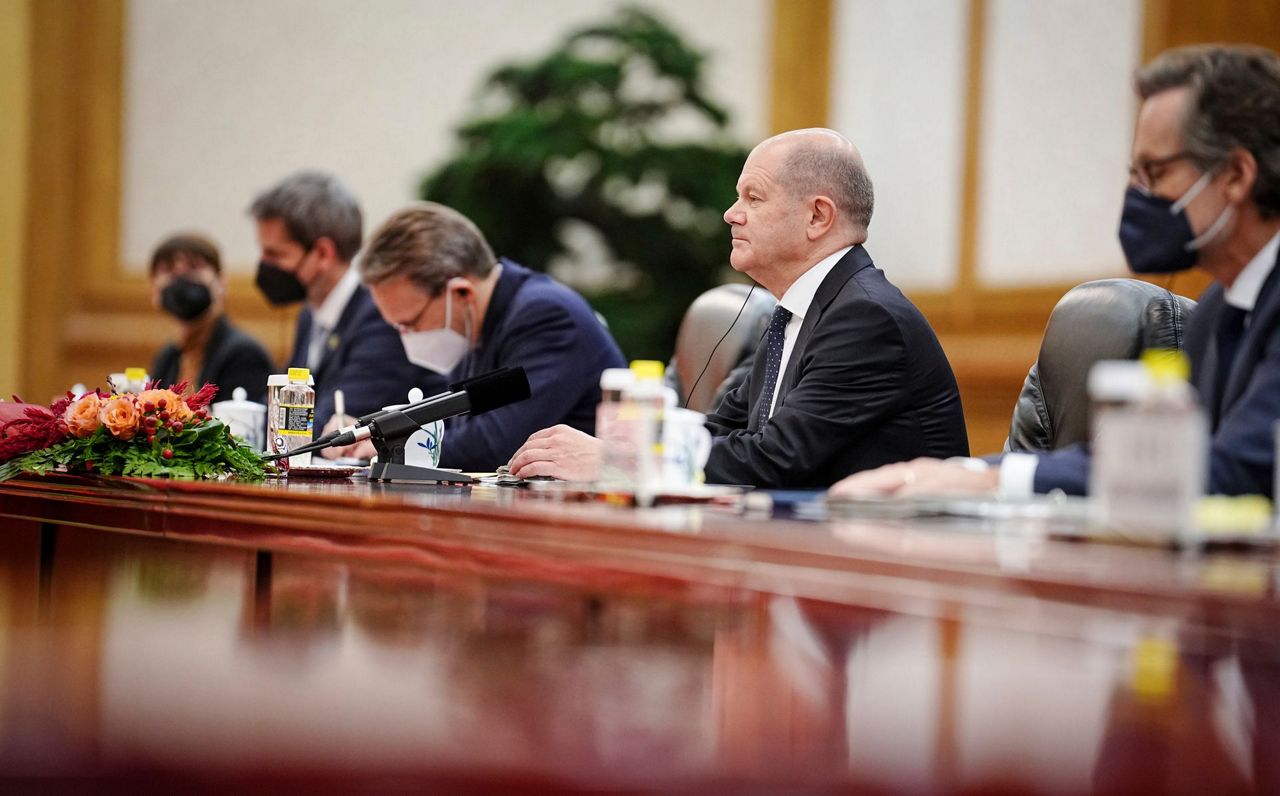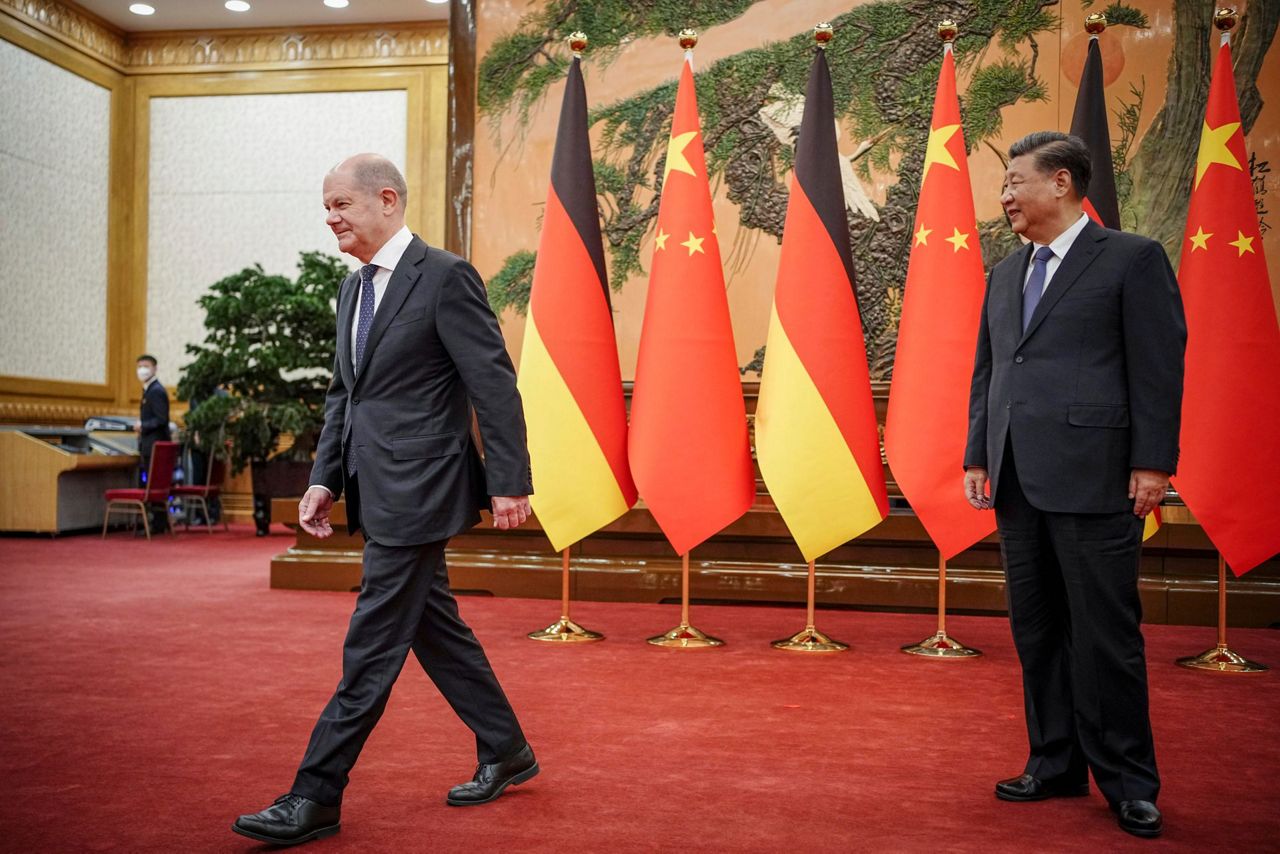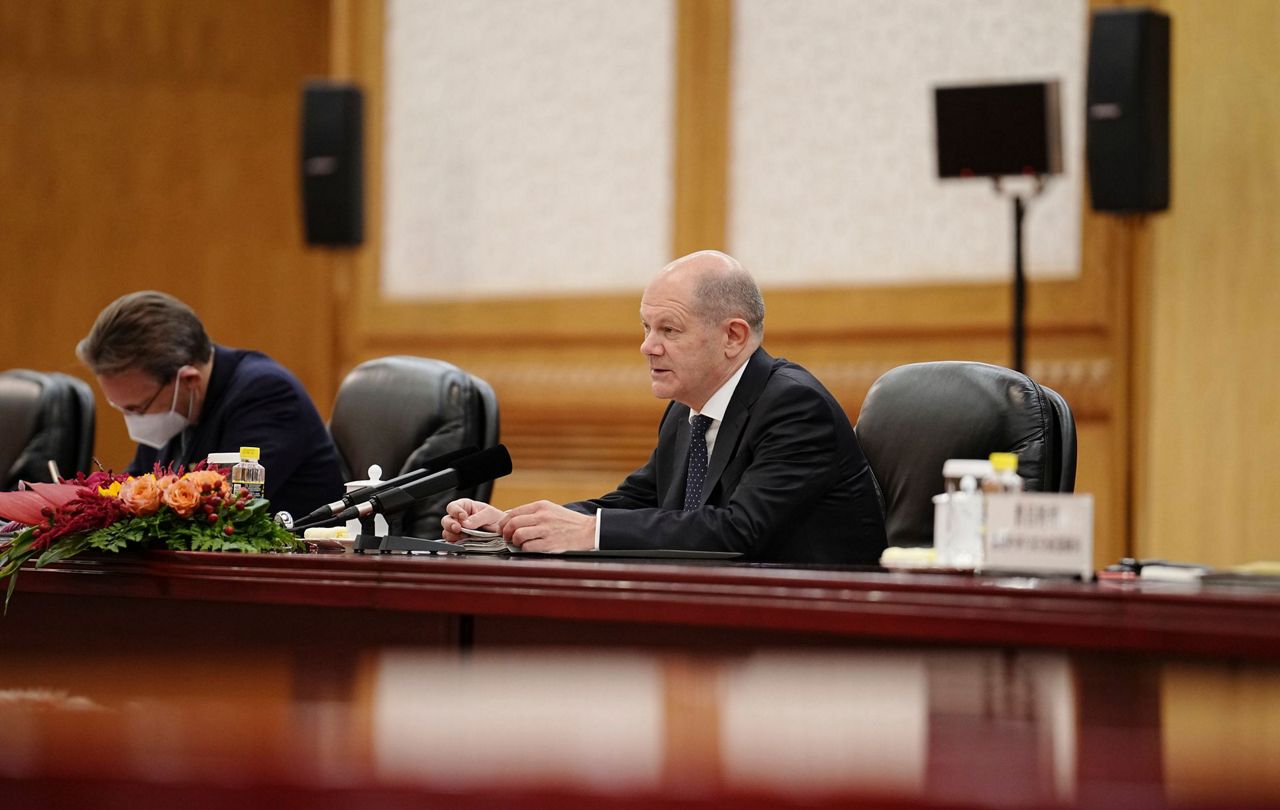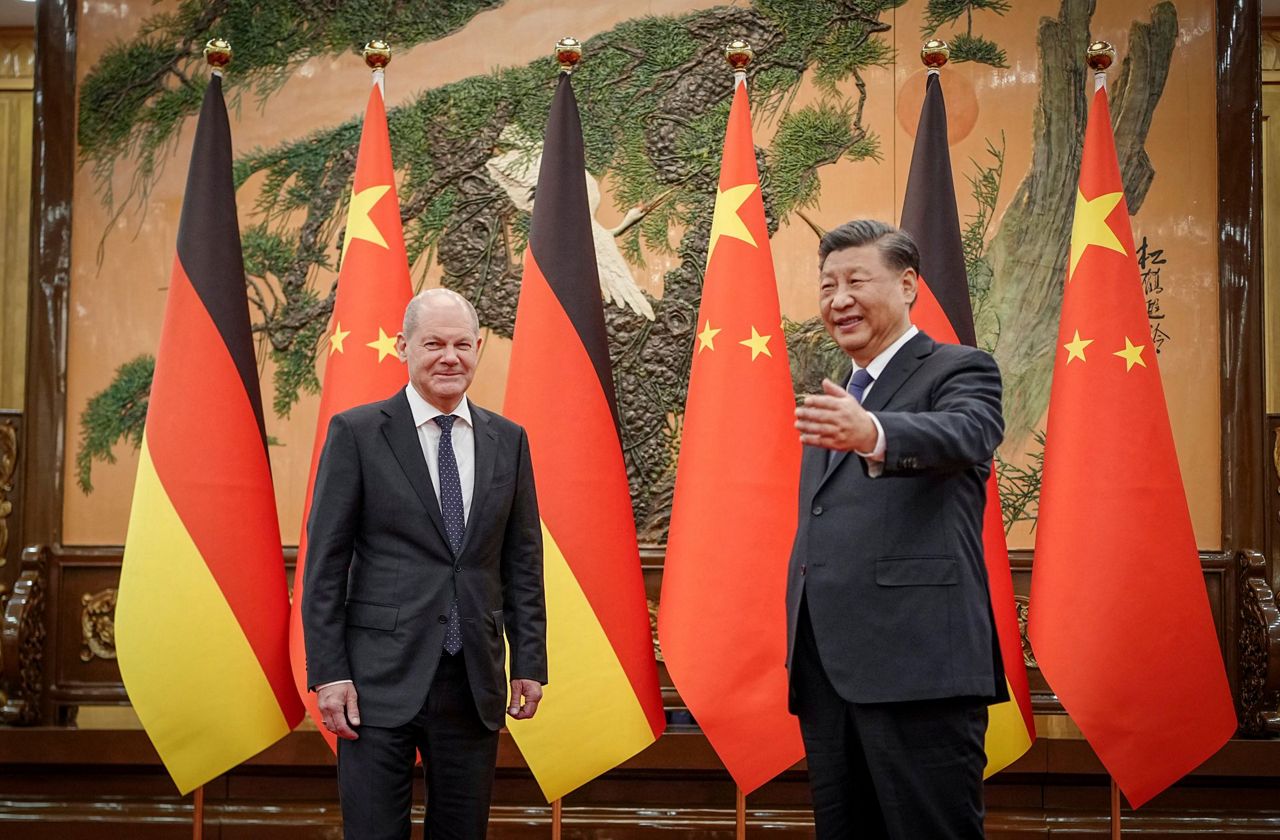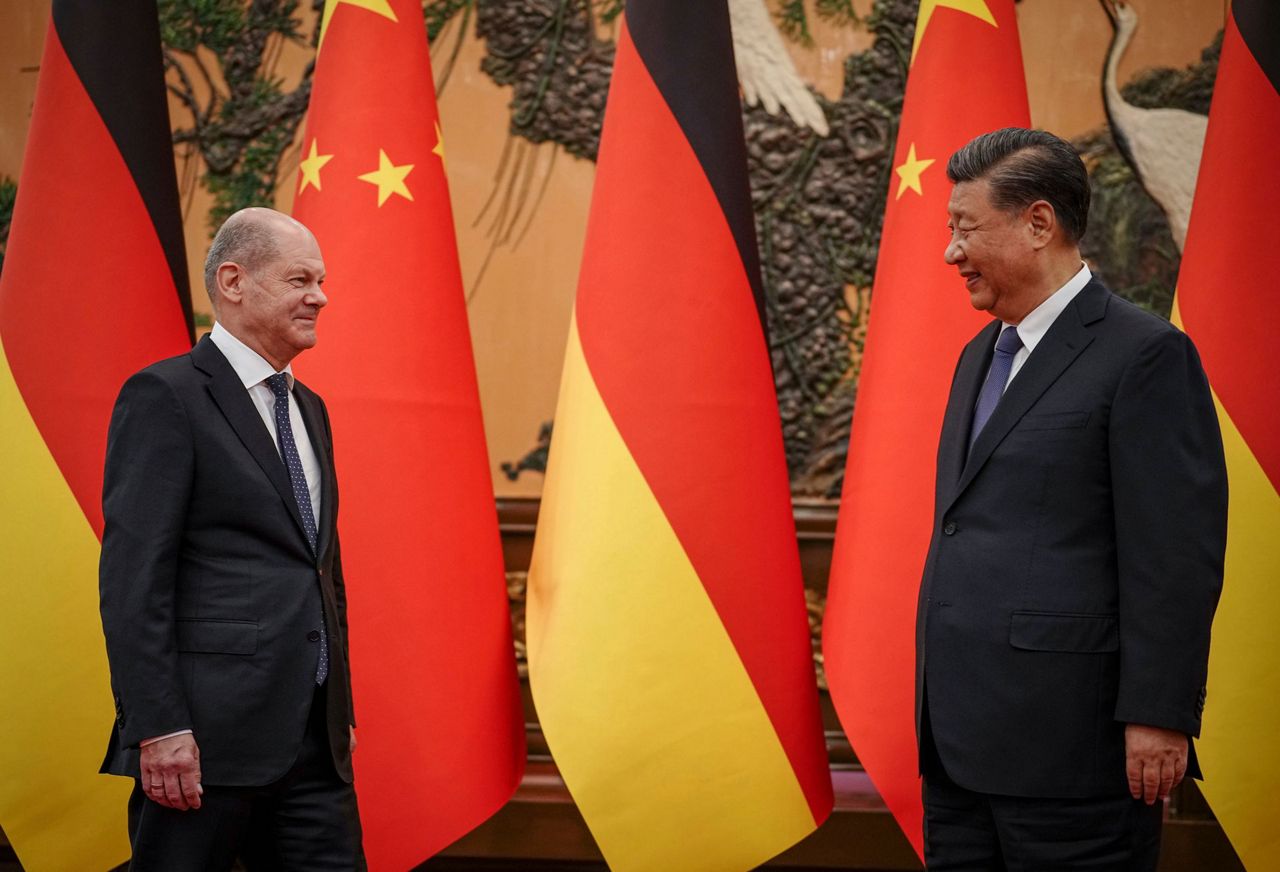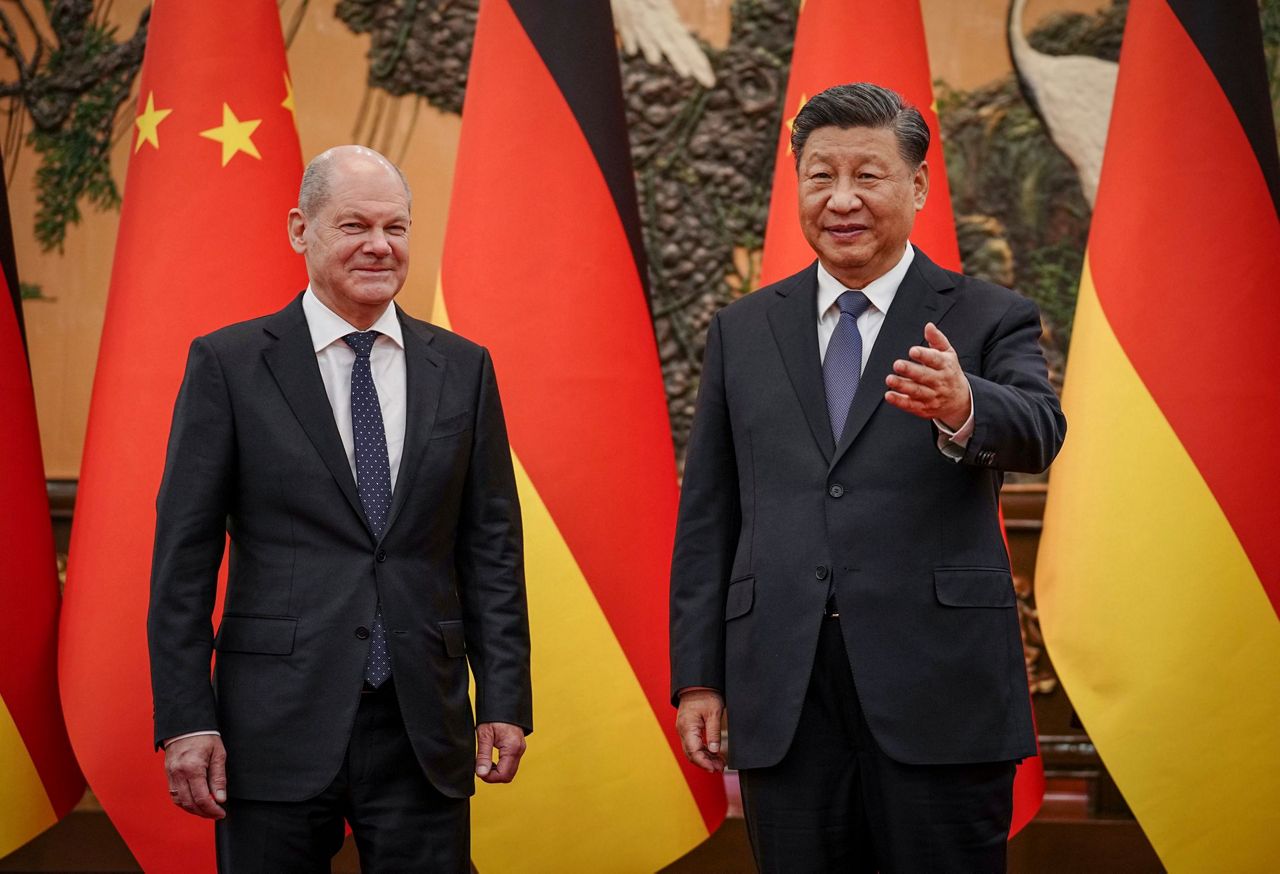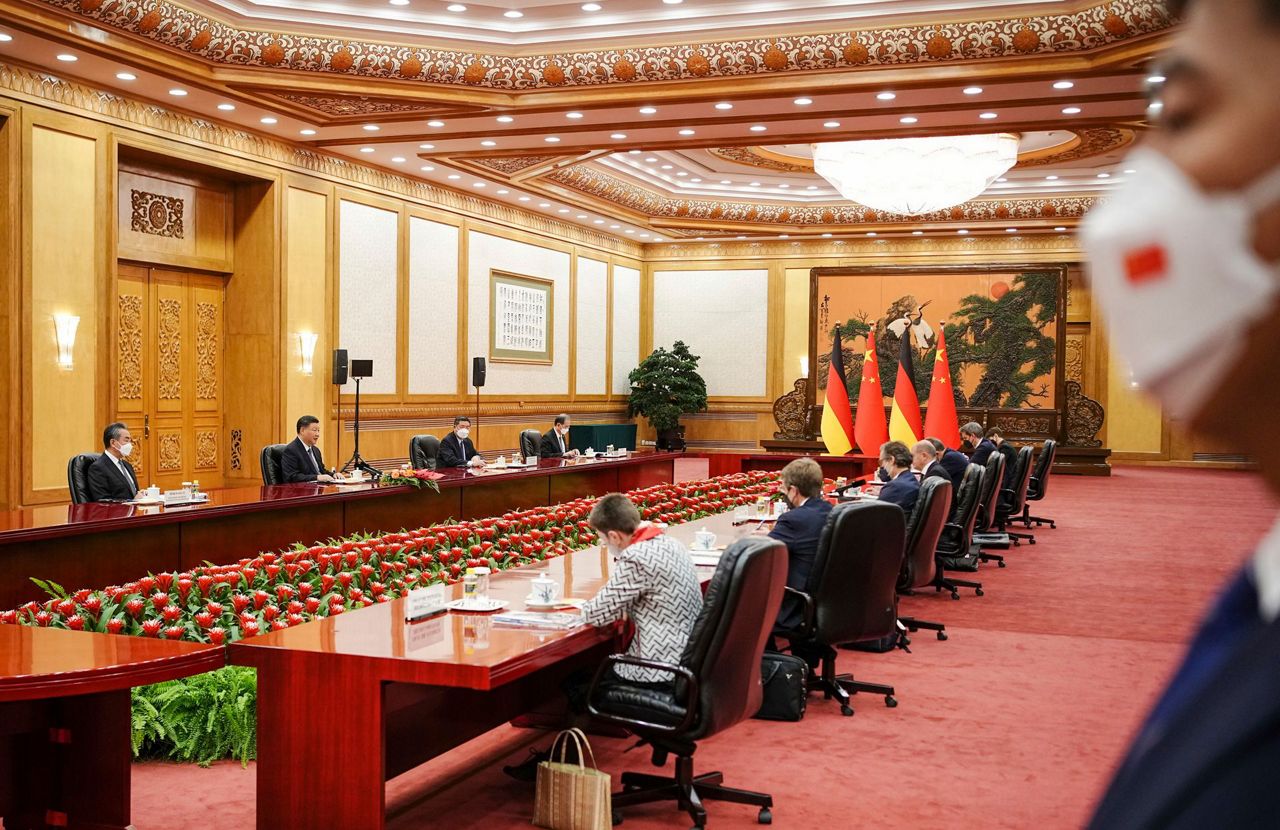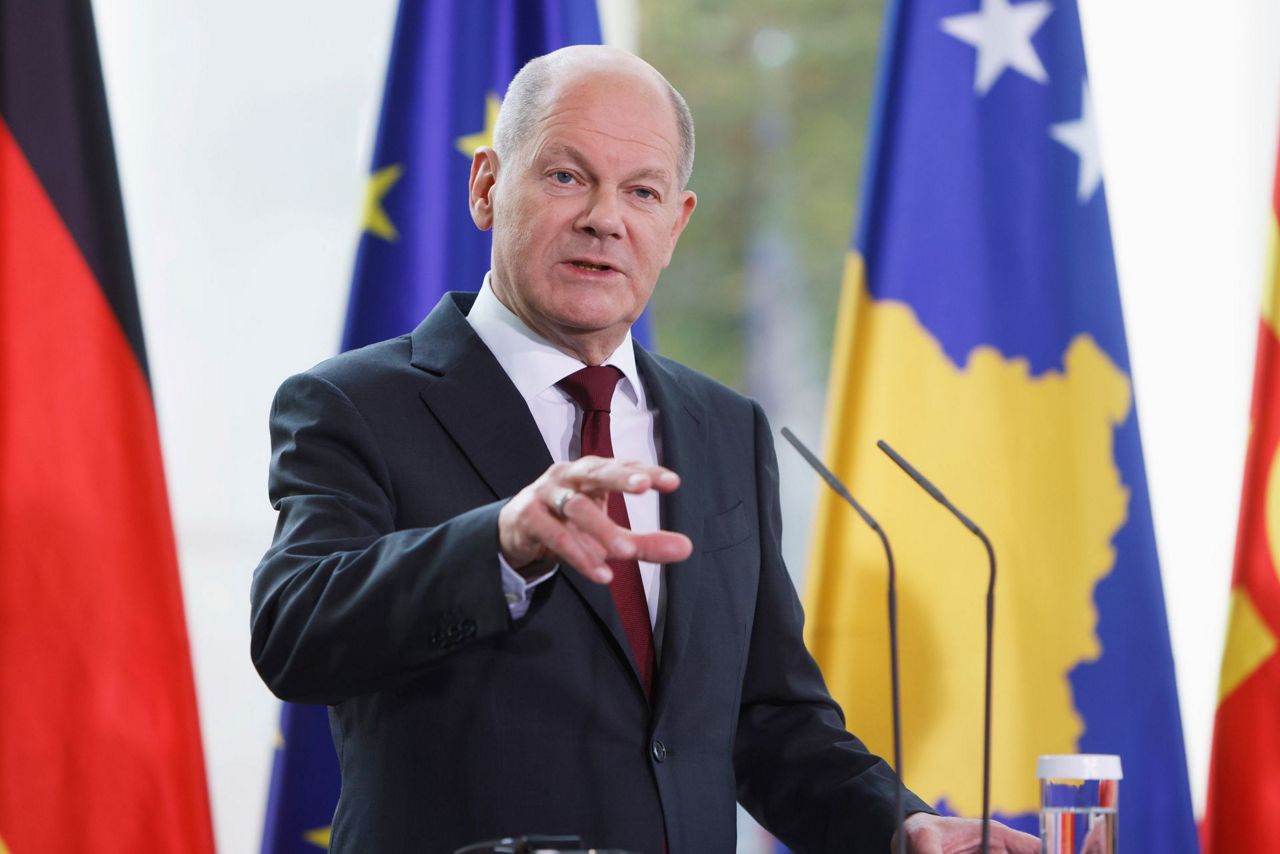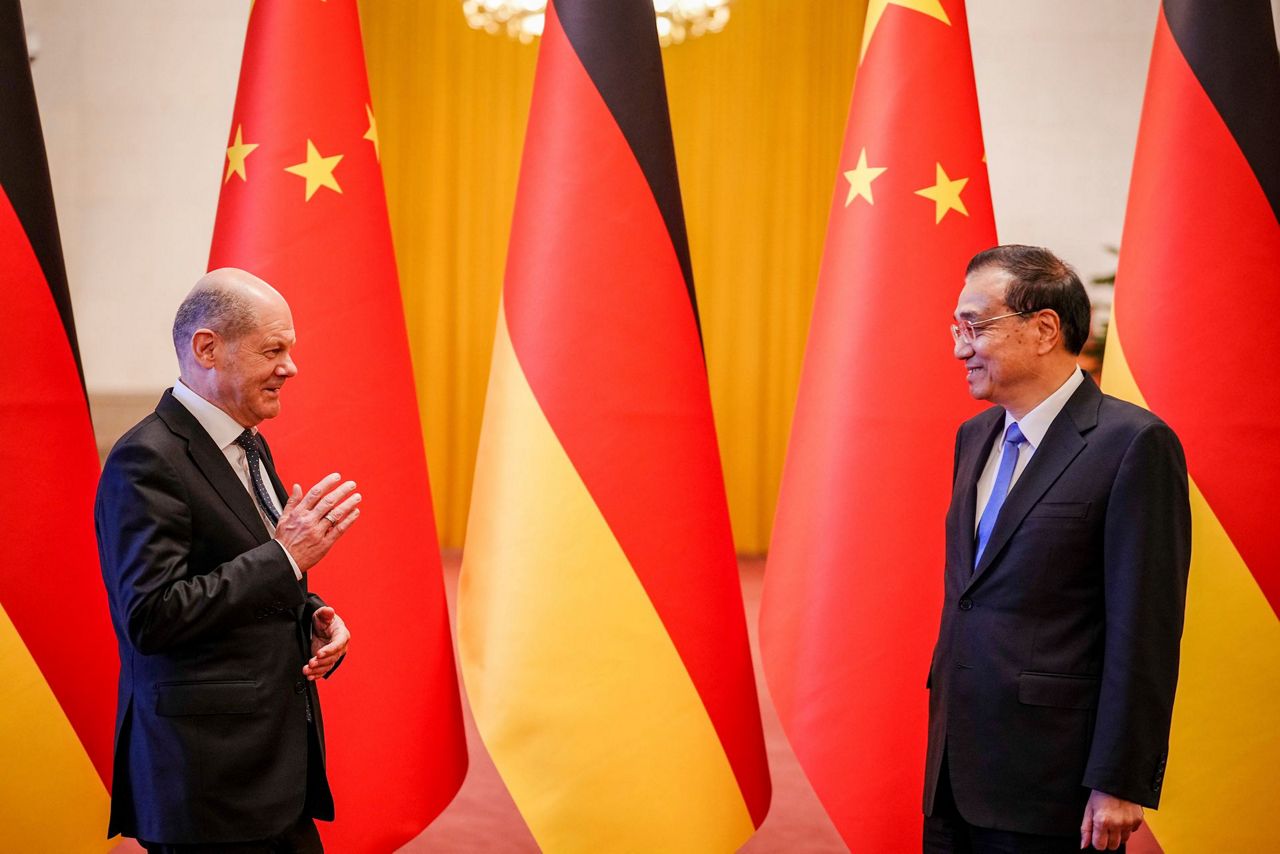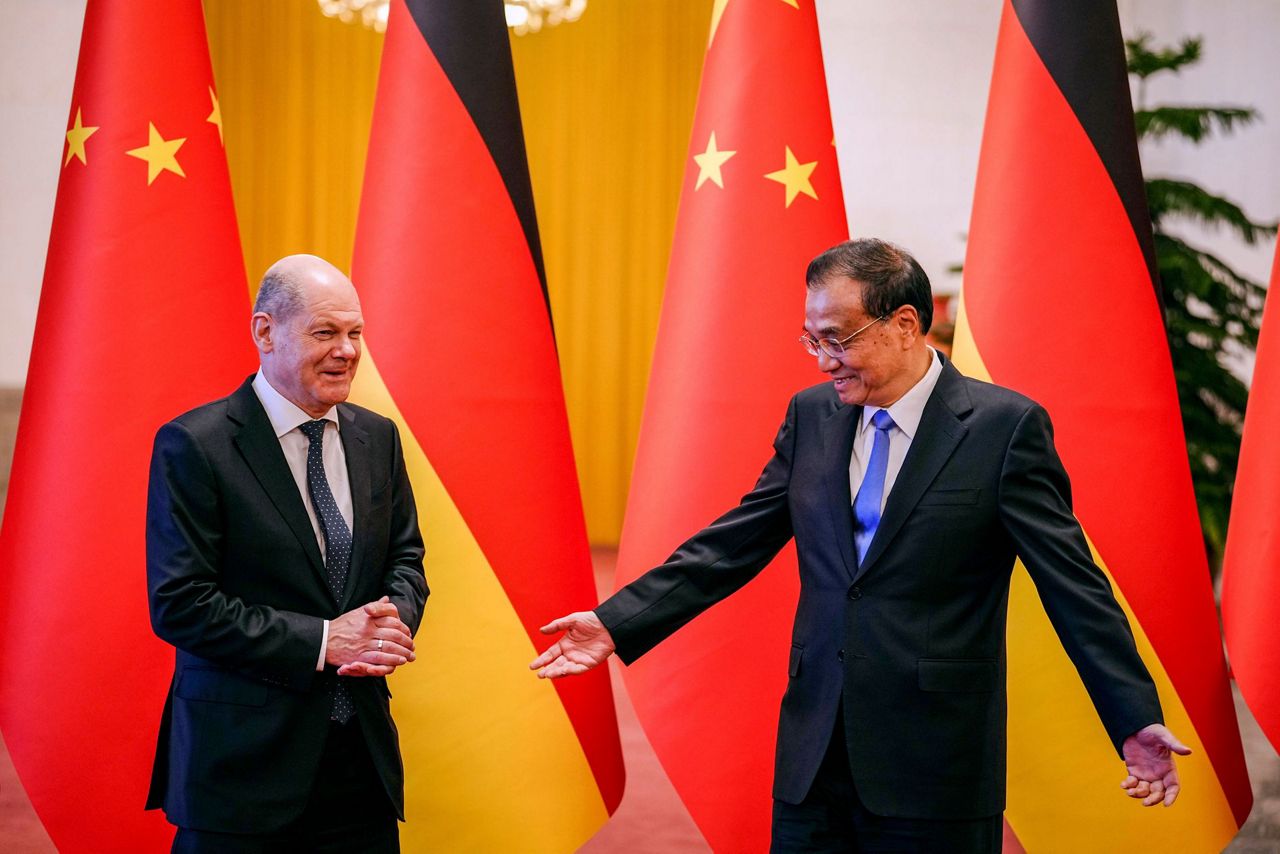BEIJING (AP) — In a much-scrutinized meeting Friday with President Xi Jinping in Beijing, German Chancellor Olaf Scholz urged China to exert its influence on Russia, while the Chinese leader repeated a call for talks between Moscow and Ukraine and warned against the conflict going nuclear.
Scholz was in Beijing for a one-day visit that has drawn criticism over China’s tacit support for Russia, lingering controversies over economic ties and human rights issues, as well as the timing of the trip.
It comes after Xi further cemented his authoritarian rule at a major Communist Party congress last month and as China continues to refuse to criticize Russia for its invasion of Ukraine.
Scholz's visit reflects the importance of Germany’s trade ties with China, the world’s second-largest economy, particularly in the auto and manufacturing sectors. Mercedes Benz alone sold 758,863 cars in China last year, more than in any other country.
Scholz, who traveled with several top German business leaders, received a formal welcome from Xi, who was recently reappointed head of the ruling Communist Party for a third term, at the Great Hall of the People in the heart of Beijing.
“At present, the international situation is complex and changeable," Xi was quoted as telling Scholz by state broadcaster CCTV. “As influential powers, China and Germany should work together in times of change and chaos to make more contributions to world peace and development."
On Ukraine, Xi “pointed out that China supports Germany and the EU in playing an important role in promoting peace talks and promoting the building of a balanced, effective and sustainable European security framework," CCTV reported. That was apparently a nod to Russia's anger over NATO's eastern expansion.
The international community should “create conditions for the resumption of negotiations (and) jointly oppose the use or threat of use of nuclear weapons," Xi said.
Scholz is the first leader from the Group of Seven leading industrialized nations to meet with Xi since the start of the COVID-19 pandemic, which was first detected in China in 2019, and the first European leader to visit China since Russia’s invasion of Ukraine, which Germany has strongly opposed.
The diplomatically delicate trip came as Germany and the European Union are working on their strategy toward an increasingly assertive and authoritarian China.
Meanwhile on Friday, G-7 diplomats met in Germany to rally support for Ukraine and coalesced around suspicion of China’s increasing assertiveness amid a wide range of global crises.
Beijing has provided Moscow with diplomatic backing by repeatedly calling for peace talks while refusing to support measures at the United Nations criticizing Russia's invasion. It has also accused the U.S. and NATO of provoking the attack and scathingly criticized economic sanctions imposed on Russia.
In his opening remarks, Scholz referred directly to the conflict that has created millions of refugees and upended world food and energy markets, saying, “We come together at a time of great tension."
“In particular, I want to highlight the Russian war against Ukraine, which poses many problems for our rules-based world order,” Scholz said.
Scholz also touched on global hunger, climate change and developing-world debt as important issues.
At a later news conference, Scholz said he told Xi that “it’s important for China to exert its influence on Russia." He gave no details on what the West wanted China to do.
“President Xi and I agree that nuclear threats are irresponsible and highly dangerous. By using nuclear weapons, Russia would cross a line that the international community has drawn together,” he said.
Scholz also said he brought up human rights and market access, and told Xi that any change in the status of self-governing Taiwan “can only happen peacefully and by mutual agreement.” China claims the island republic as its own territory, to be brought under its control by force if necessary.
In an apparent reference to European lawmakers and the Baltic state of Lithuania that China has banned and boycotted over their relations with Taiwan, Scholz said, “It is also important to be clear that economic measures against individual EU member states are directed against the entire EU single market, and sanctions against EU lawmakers are not acceptable for us.”
Scholz has come under criticism for making the visit to China so soon after Xi's triumph at last month's congress, at which he promoted allies who support his vision of tighter control over society and the economy and a more confrontational approach to the West.
The visit is also occurring amid rising tensions over Taiwan and follows a U.N. report that said Chinese human rights violations against Uyghurs and other ethnic groups in its Xinjiang region may amount to crimes against humanity.
Scholz was accompanied by about a dozen top German business leaders, including the CEOs of Volkswagen, BMW, BASF, Bayer and Deutsche Bank, most of which are doing a thriving business in China. That has some German observers questioning whether the country is becoming overly reliant on the Chinese market, just as it did with Russia for energy supplies.
VW's China head, Ralf Brandstatter, said Scholz's visit was important during “politically and economically challenging times like these."
China is Germany’s most important trading partner, with 5,000 German companies active in the country and hundreds of thousands of German jobs tied to the Chinese market. More than 14 million jobs in China depend on business with European companies, Brandstatter said.
Scholz also met with Premier Li Keqiang, who nominally has responsibility over China's economy.
At home, some have criticized Scholz for normalizing China's behavior. While his nearly year-old government has signaled a departure from predecessor Angela Merkel’s firmly trade-first approach, his trip follows domestic discord over a Chinese shipping company’s major investment in a container terminal in Germany's crucial port of Hamburg.
With China still imposing tough COVID-19 restrictions, his delegation moved in an anti-virus bubble, undergoing testing and not staying in Beijing overnight. At just 11 hours, it is the shortest trip ever to China by a German leader.
German officials say the trip sought to probe where China is going and what forms of cooperation are possible.
___
Associated Press reporter Geir Moulson contributed to this story from Berlin.
Copyright 2022 The Associated Press. All rights reserved. This material may not be published, broadcast, rewritten or redistributed without permission.



